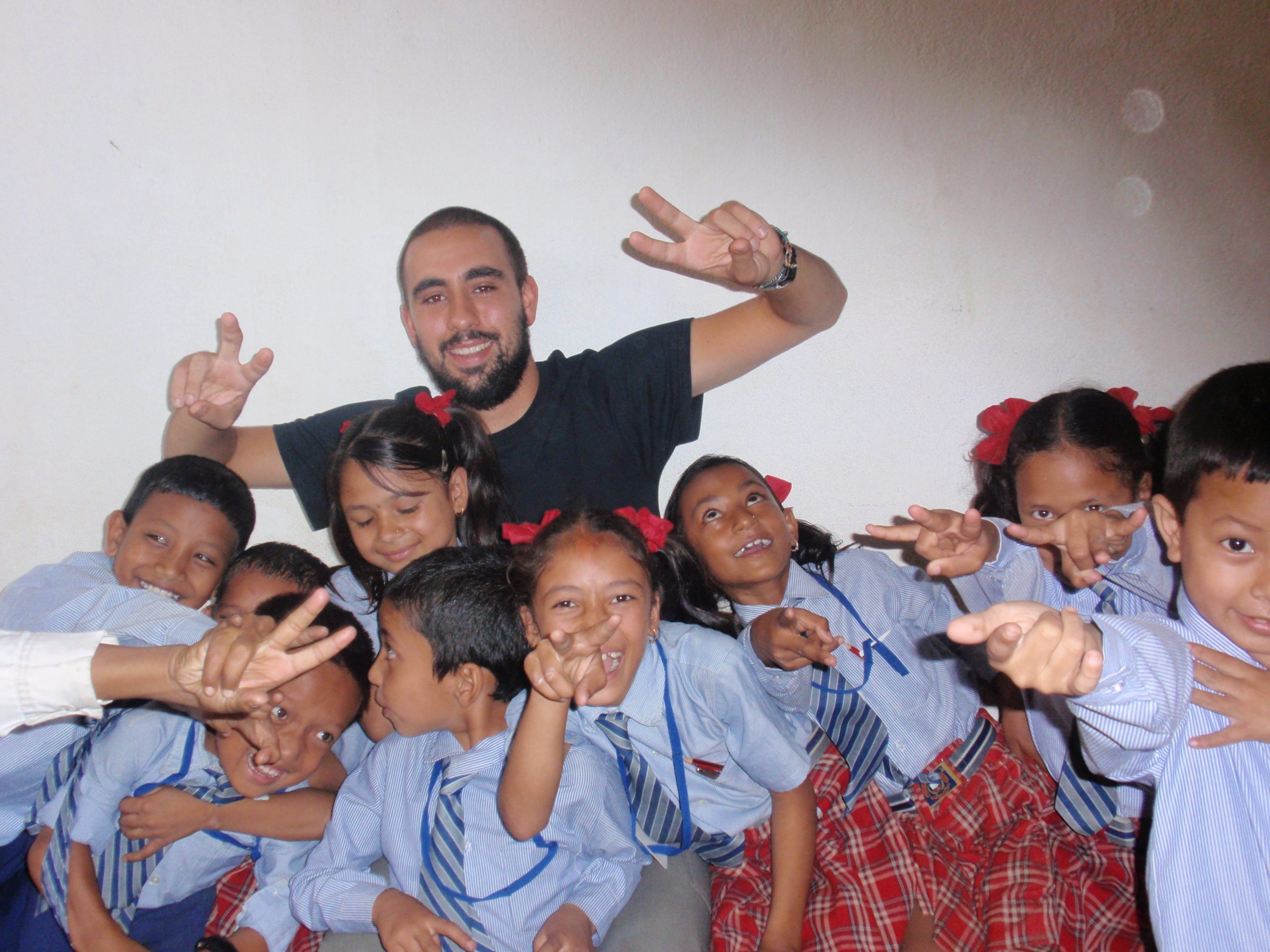
Deciding what to do after college can be difficult for many people. US History and AP Psychology teacher Jonathan Saufley fell into this category.
After college, Saufley didn’t know what he wanted to do, so he decided to book a plane ticket to Nepal and see where it could take him.
“I went to Nepal with zero plans, just a plane ticket,” said Saufley.
In Nepal, Saufley found that there weren’t many volunteering opportunities. He decided to be the change.
“Before flying over there, I did some research on different volunteer organizations in the country but could not find many at the time that had an American presence. I figured I could be that American presence for a new organization,” said Saufley.
In 2009, Saufley created Mamata Volunteers, his own non-profit organization dedicated to helping the local Nepali community.
“Our mission was to attempt to connect the desperate worlds of the Nepalese people and those in the west with the knowledge that both would grow from the experience. Those in the west have a lot to offer the people of Nepal (teaching English, helping in a medical capacity, etc), but that is a two-way street,” said Saufley.
Saufley emphasizes how much the Nepalese can help teach the people in the United States.
“I would argue that the people we sent over, myself included, grew far more from the experience than those in Nepal we worked with. The idea is that by bridging cultures and coming together, we can share our unique insights and everyone improves as a result,” said Saufley.
Creating a non-profit business proved challenging for Saufley in many different ways.
“Advertising in the west was a challenge. A non-profit, by nature, does not make a profit. I never made any money from my work with Mamata so getting the word out in the states about the organization was difficult to do on a small, non-existent budget,” said Saufley.
Even though Saufley largely did all the work himself, he met someone who helped him get his feet wet.
“I met a gentleman named Rajan who had all of the connections and infrastructure in Nepal to make Mamata a reality,” said Saufley.
Through the efforts of getting the nonprofit started, Saufley quickly found how gratifying his work was.
“[It was rewarding to see] how excited the kids at various orphanages were to ‘hang out with the Americans’ and [to hear] about how impactful volunteering was for the people who went over,” said Saufley.
According to Saufley, volunteering can have a life-lasting impact.
“Travel, particularly to a place that is so different than the states, living in a culture different than your own, and learning from people who are totally unlike any you have learned from before, can have a profound and life-changing impact on one’s perspective,” said Saufley.
Mamata Volunteers trains people from the United States to go to Nepal and serve.
“We trained volunteers from the west to work in Nepal in a myriad of different volunteer capacities. From teaching, to medical, to agriculture,” said Saufley.
Many Mamata volunteers worked in Kathmandu, the capital of Nepal.
“A lot of volunteers ended up in Kathmandu but we had placements all over the country,” said Saufley.
According to Saufley, Mamata Volunteers was not just about helping the people in Nepal, but also helping the people in the States.
“[I] just want to be clear about dispensing with the notion that Mamata, or any volunteer organization like it, is designed so the ‘rich western people can go over and help the impoverished.’ That is not at all what it was/is about. Our goal was a cultural exchange, the people in Nepal have as much (if not more) to teach us as we do them,” said Saufley.
Creating Mamata Volunteers gave Saufley insight on how to start a non-profit from the ground up.
“You really have to find good people you can trust. Lean on their expertise and try to find the ways you can harness your skills to add to the overall goal of the organization,” said Saufley.
If someone wanted to start their own non-profit, Saufley thinks that it is important to have a specific need to address.
“Identify an authentic need. That may be in your community or on a global scale,” said Saufley. “Start from the ground up, not the top down. Don’t presume to know, at first the intention should be to learn.”
To find out more about Mamata Volunteers go to their website: http://mamatavolunteers.org/





